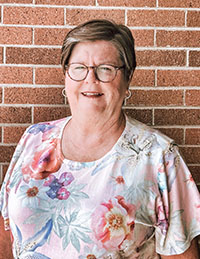Getting technical: new IT director presents plan for Comptroller findings
Brian Sutton had his work cut out for him.
It was 14 months ago when Batavia City Schools shed light on a Comptroller’s report that found the district paid some $17,000 in annual fees for hundreds of lost technology equipment from 2021-22.
The report stated that the district did not adopt a comprehensive policy for establishing and maintaining IT inventory or for maintaining an accurate IT inventory, a costly faux pas that Superintendent Jason Smith had promised to rectify with new policies, and had outlined steps the district had taken to meet Comptroller findings:
- We have engaged a third-party company specializing in IT services to conduct an assessment of our entire IT department, including our inventory and staff.
- Our internal team has taken the results from the audit and gone above and beyond to reduce our BOCES service charges by purging and returning unused inventory.
- We are working closely with the Board of Education to adopt a comprehensive written policy for establishing and maintaining controls to track and inventory our IT equipment.
In February 2023, Smith made a recommendation to bring back a full-time IT director to the district. He and Trisha Finnegan, executive director of staff development and operations, wrote the job description for the tech director, and a candidate search was conducted.
Brian Sutton was chosen for the job. He began the position on July 1 of this year, and Monday was his first official presentation after submerging himself in the policies and protocols, storage areas, and technology infrastructure, and getting to know the district users themselves.

Right off the bat, Sutton was faced with key findings from the audit that he needed to address while aligning with the district’s Strategic Plan.
Goal 1 was to have a safe and orderly school environment, Goal 2 was for a collaborative culture, Goal 3 was for a clear and accessible curriculum, and Goal 4 was for effective teaching in every classroom.
His first task was to review the existing structure and services offered through BOCES, including database management, the physical inventory process, technology leadership and how assets are identified and tagged.
Then he had to reestablish a formal leadership in the technology department and implement a formal Technology Committee, with a data protection privacy officer and reviews of data privacy law to ensure that all requirements are being met, he said.
"So getting them to touch base in person, once a week, with the rest of the department has been very, very wonderful,” he said. “And honestly, we've addressed issues much quicker because of that interaction.”
Sutton has been working with Edutech — Genesee Valley/Wayne Finger Lakes Educational Technology Service — a collaboration that has meant a shared staff of network engineer I, IT support technician II, network technician, and support technician I.
That has reaped a minimal savings of $85,000 in salaries for the district, Sutton said.
He has been working with Edutech to ensure that tags are provided on all “products” that come from them, which is a restructuring of Batavia’s inventory system and prices to ensure accountability for all hardware, he said, including district-owned devices, per board policy.
He’s implementing a software program to track software inventory product purchases and related expiration dates. He has been rearranging and organizing the physical workspace of the technology department and at the storage room at Robert Morris.
All of these tasks have been items to enforce the existing board policies on inventory control based on the Comptroller’s audit. Not only were hundreds of devices discovered missing from inventory, but the district had been paying their annual fees.
Stepping into his own role to provide technology leadership, Sutton is using the functional review audit as a roadmap to prioritize and address issues that were uncovered, he said.
As a result, he is having weekly technology department meetings with tech aides at the middle and high schools, providing guidance and support to the creation of the digital fluency class at the middle school, and re-establishing the district technology committee with a focus on staff development and learning, he said.
Sutton has been working with Finnigan and has worked on data privacy as part of Education Law 2D Compliance, scheduling ongoing meetings with representatives of Edutech, updating staff about the Acceptable Use Policy, and creating an Incident Response Plan and Disaster Recovery Playbook.
Part of data privacy also includes keeping in line with state compliance so that student information remains confidential, he said, through an expanded Brightly Work Order system for staff to submit requests to check if sites or applications they want to use are compliant.
As for the infrastructure, he looked at the layout of buildings and related wireless signal strengths to see potential dead zones and address those so that students and staff won’t experience dropped connections during class and work time, he said.
“We had conducted a wireless survey to show a map of the connectivity in the buildings, it was really neat, actually, it brings a layout of the building, and then it's different colors based on the signal strength,” he said. “So we had really great connectivity throughout the district. We did identify a couple of classrooms that were dead zones, and we're addressing those by adding wireless access points into those rooms so that there isn't that disruption to students and staff when they're on their devices.
“Last week, we also upgraded our wireless output from one gig to two with Spectrum. So that will only increase the speed at which we are operating here,” he said. “And it's also very important when it comes to computer-based testing time, as we're going to have many many students on the device all at the same time.”
He adjusted settings in the Google Admin console to improve the rate of connectivity of devices.
He also worked with Edutech and approached the firewall issue, which used to be a convoluted multi-layer system that has been revised to speed up devices.
He homed in on Chromebooks at each grade level, so that “students only have access to applications that are applicable to their grade level.”
“I really focused on what’s needed for the curriculum,” he said.
Cybersecurity training, a professional hub of resources for staff, and an updated district website that meets compliance with the state Education Department are additional tasks that have been completed with assistance from staff, he said.
“This is super exciting, I know, but incredibly necessary. So this is what the state is looking for. Basically, when they go on our website, they're going to click on that data privacy tab, and they're gonna start trying to find where we're missing things and they're not gonna find anything, but just the idea,” Sutton said. “And like I said, coming next is more focused on Goal three and Goal four, they're accessible curriculum and effective teaching in every classroom.”



